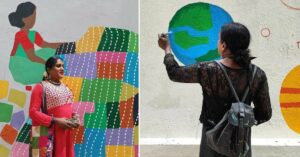An Empathetic Photo Series Sheds Light on the Invisible Lives of Africans Living in India
Mahesh Shantaram, in his debut solo show, sets out to address the racism faced by African students who study in this country.
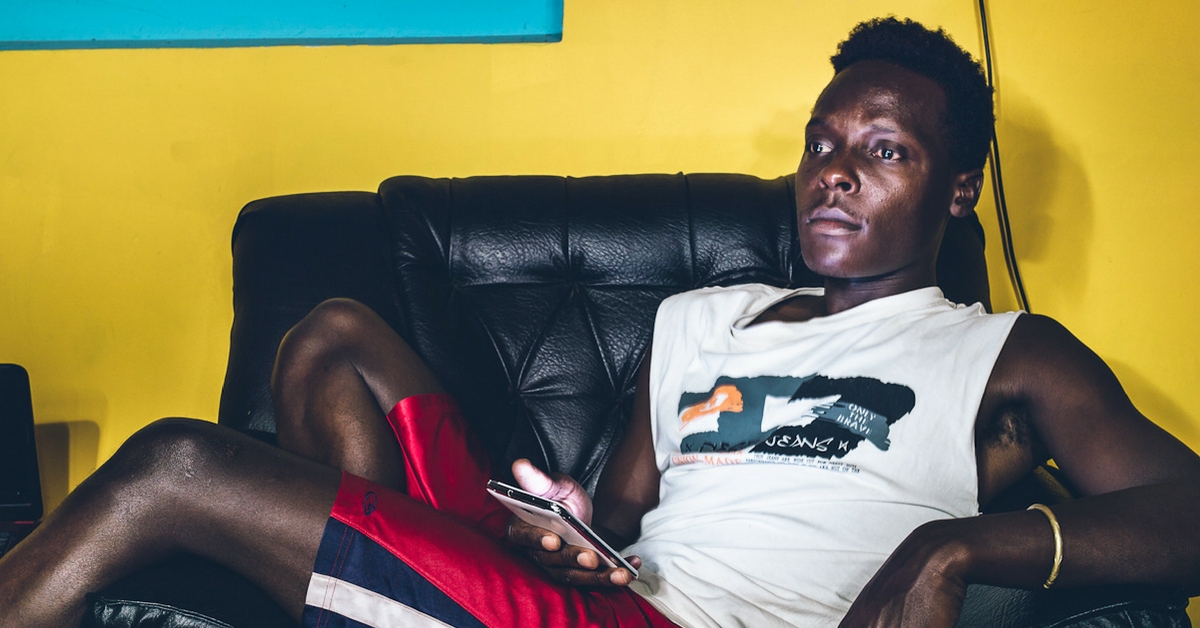
Mahesh Shantaram, in his debut solo show, sets out to address an issue that Indians are a bit reluctant about bringing up in public discourse – the racism faced by African students who study in this country.
His show named ‘The African Portraits’ opened in Bengaluru’s Tasveer art gallery on 26th August and the photographs depicted the lives of black African people living in various parts of India such as Bangalore, Jaipur and Delhi.
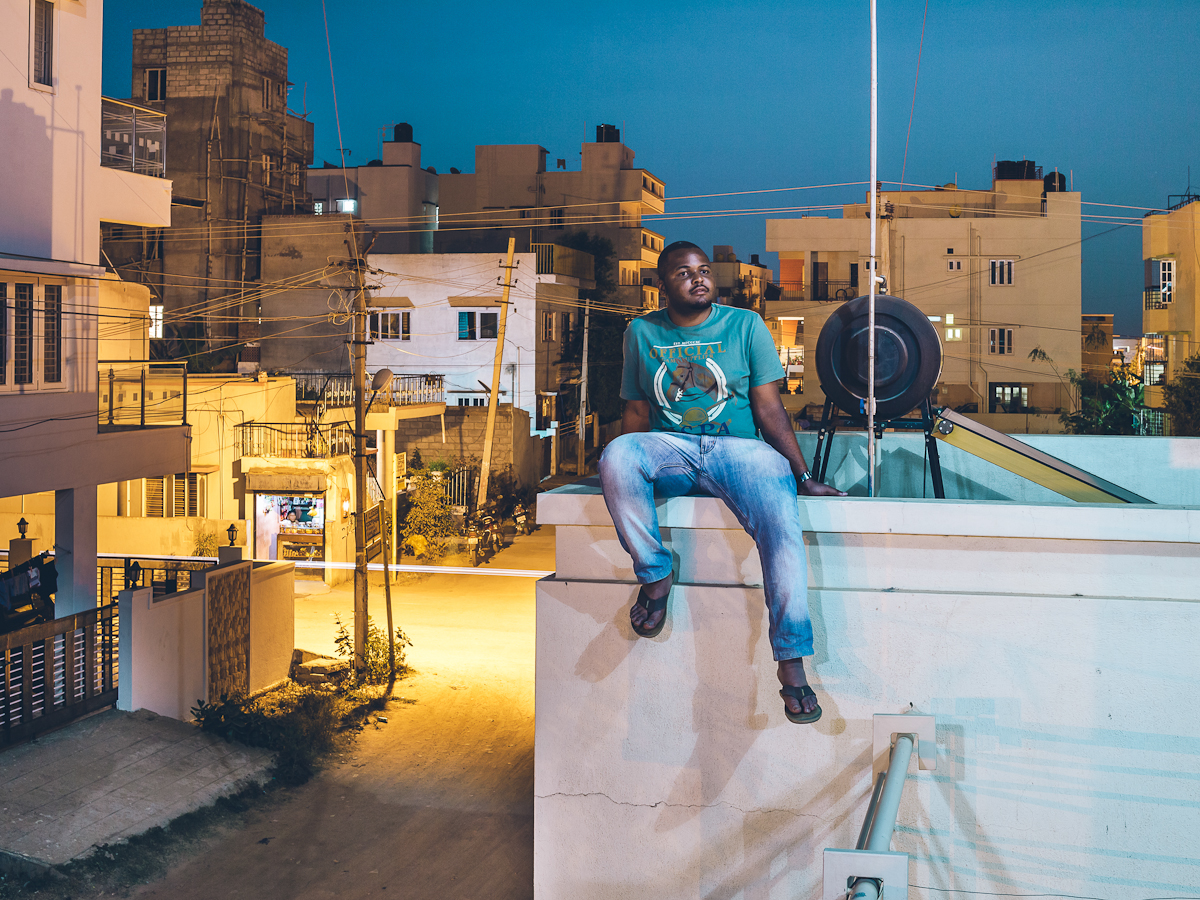
Why “black” Africans, you ask? This is what Mahesh has to say, “We can’t generalise by saying this project is about Africans because it is about racism and skin colour. There are white Africans too but I’m trying to capture the experiences of black Africans in this series.”
His interest in capturing their lives began when he read about a racially motivated attack against a Tanzanian woman in Bangalore. The project started with a single pressing question – who are the black Africans in India?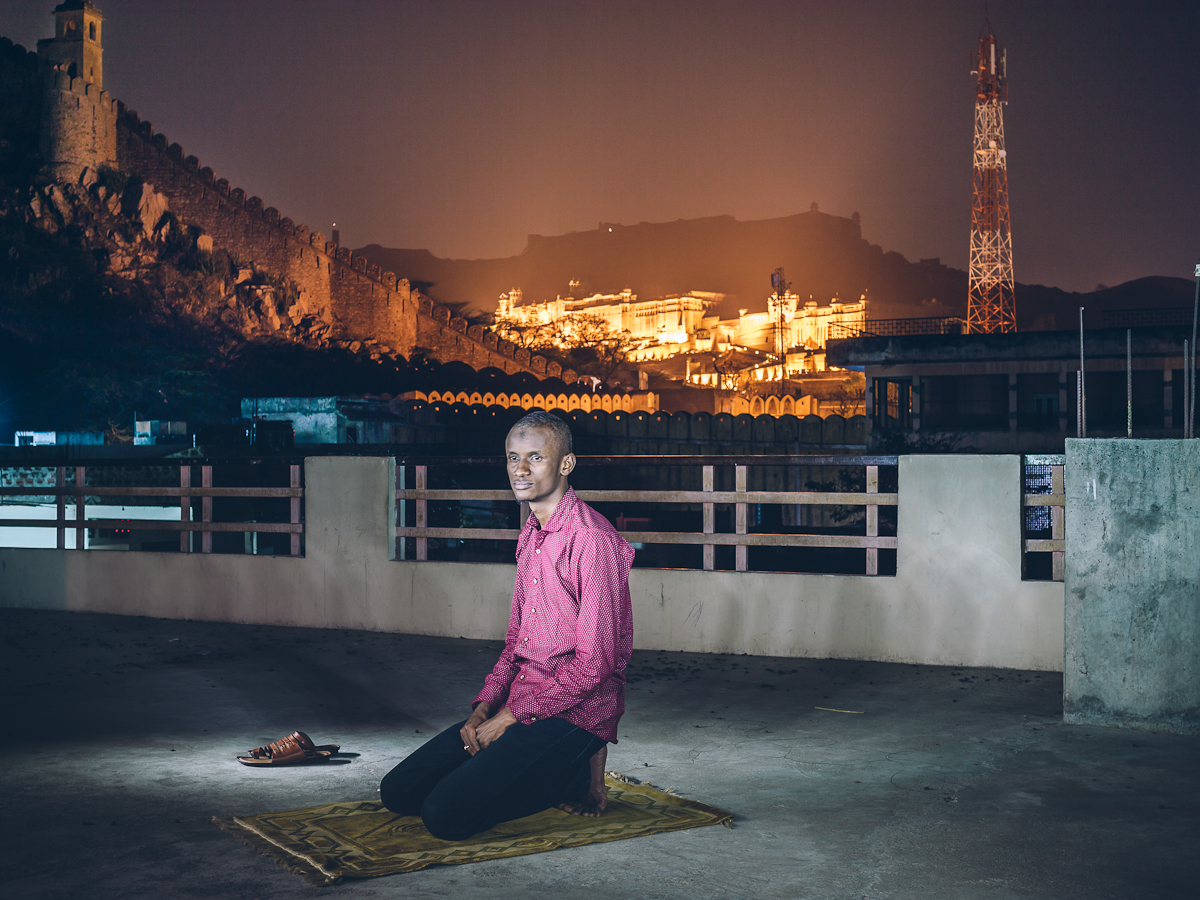
To find the answer, he began scouring the news to find Africans who might be keen to bring attention to the problems they faced every day while living in India. When he reached out to many, some of them responded positively to his request of sharing their experiences.
The photographs are formal portraits, and most of them evoke a sense of isolation that the black Africans deal with on a daily basis. Mahesh has photographed them in varied settings: in their bathrooms, beside their prayer mats, inside cars and even with their children. One of our favourites from the series is that of an African leaning beside his car in a deserted parking lot with only a decorated elephant to give him company.
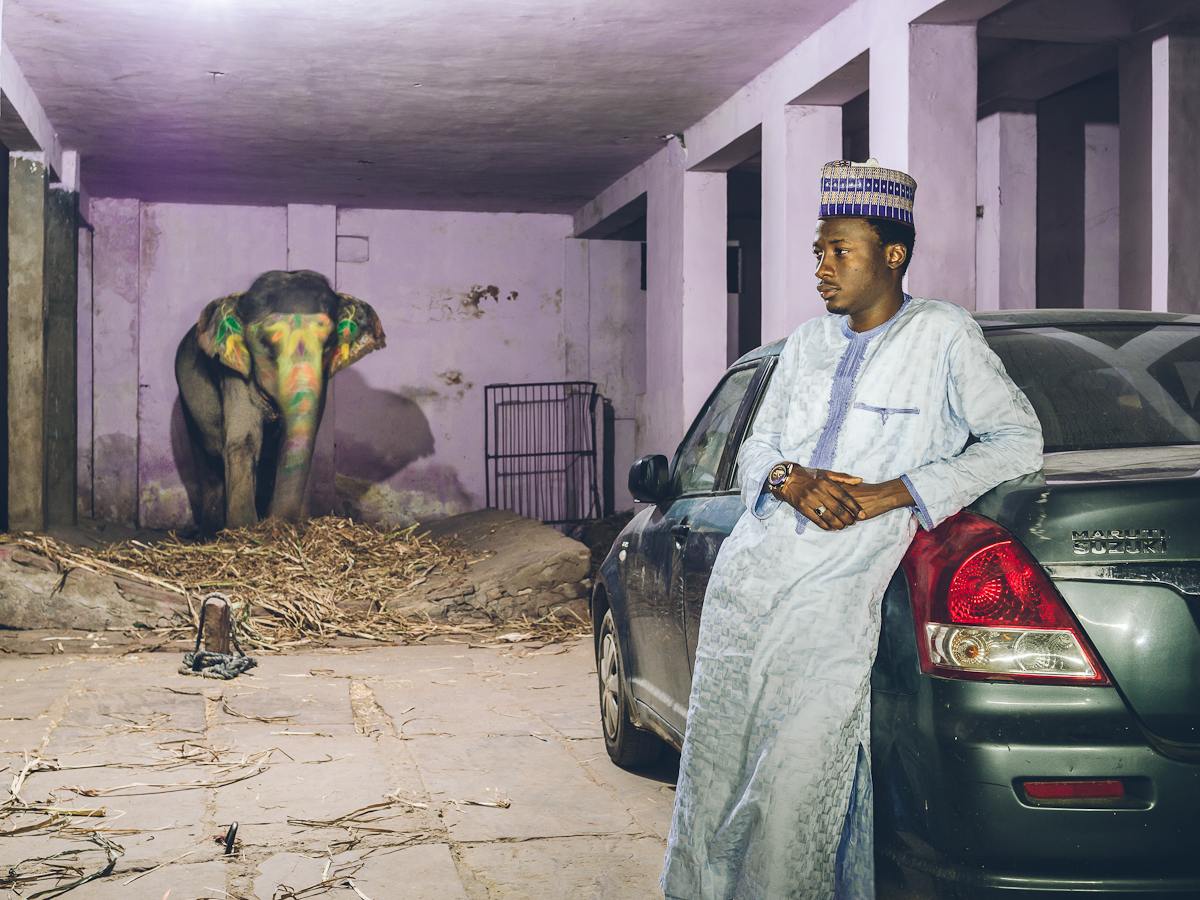
This exhibition marks one of the more serious attempts to capture the experiences of black Africans in India. Mahesh actively sought to include students in this project. He explains, “Some of them are taking management courses, others are studying subjects like radiology and pharmacology. But almost all of them do courses that will get them employed quickly. The saddest thing is that a lot of students do not get to go home and meet their families even once in a year. We should be sensitive about the fact that these people have left the comfort of familiarity behind to come and learn in a foreign land.”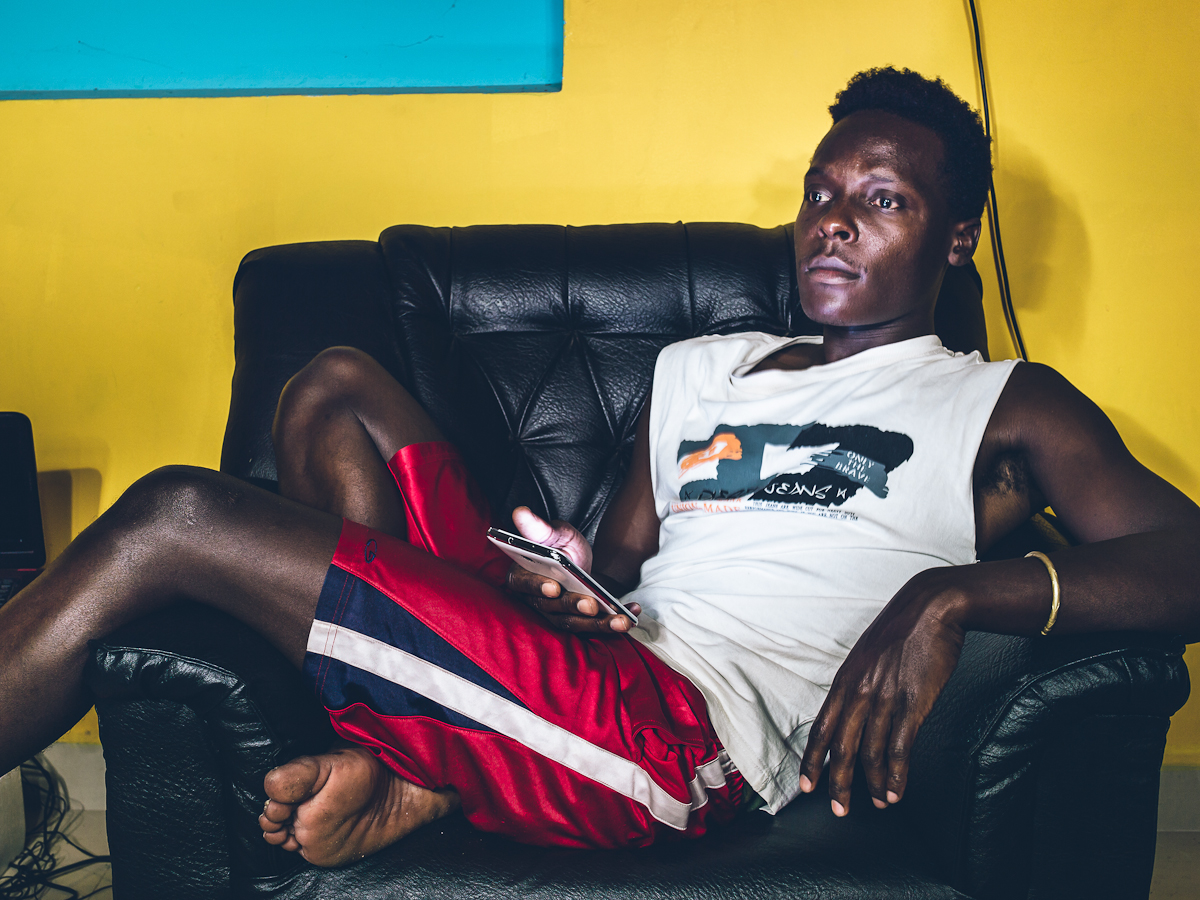
When we asked him how he thinks this project might help in sensitising Indians about racist attacks faced by black Africans, he said, “A lot of people have seen the photos and a lot of them identify with the work. I think this project has really captured the imagination of Indians, which is good. In this day and age, it is important for us to look at these visual representations. ‘Seeing is believing’ and what this project says is, ‘Look, these are the people you share your cities with and country with.’ I think that’s an important message.”
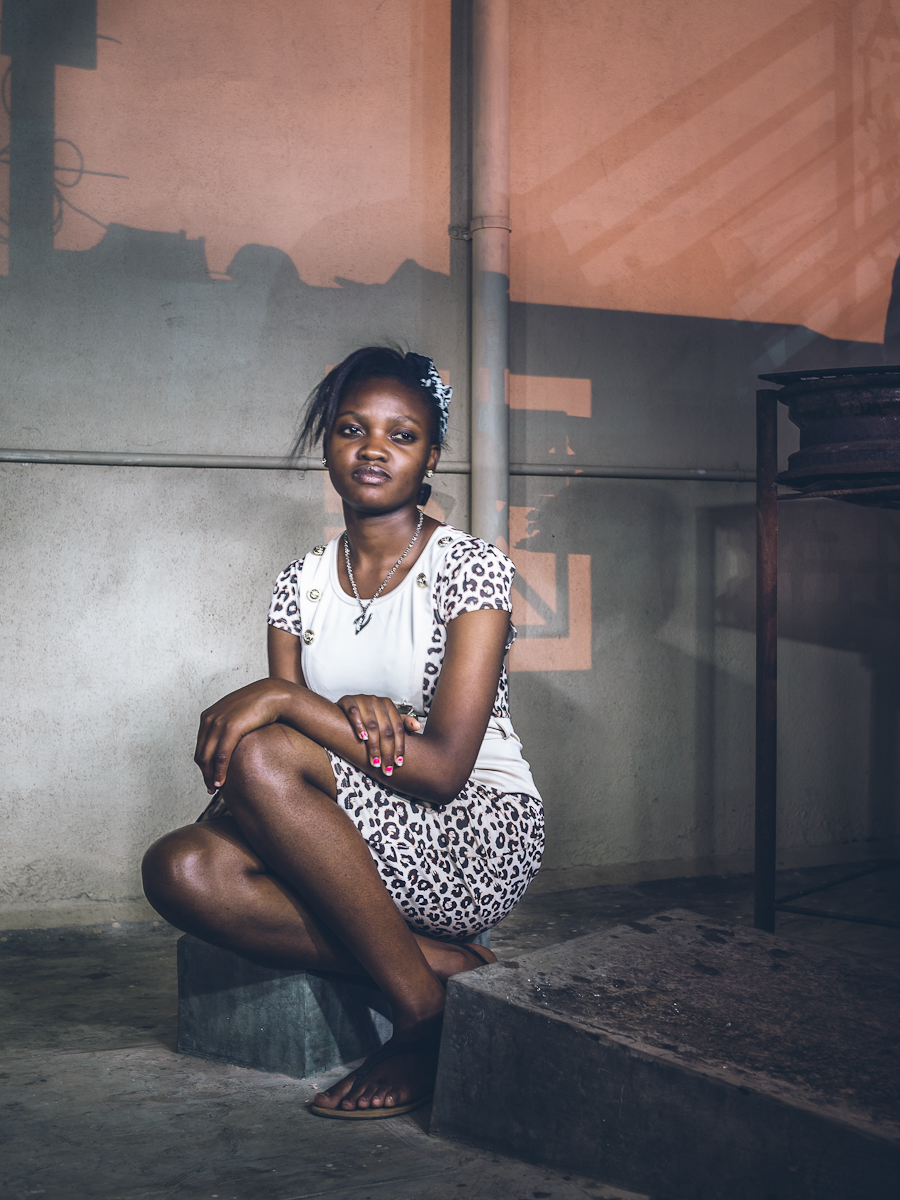
Mahesh is also of the opinion that his work is unique in the way that it does not explore the plight of the black African students through a single racist attack. He thinks that the media is keen on talking about these topics, but somehow when the message gets disseminated, a lot of people think that racist attacks are single isolated events.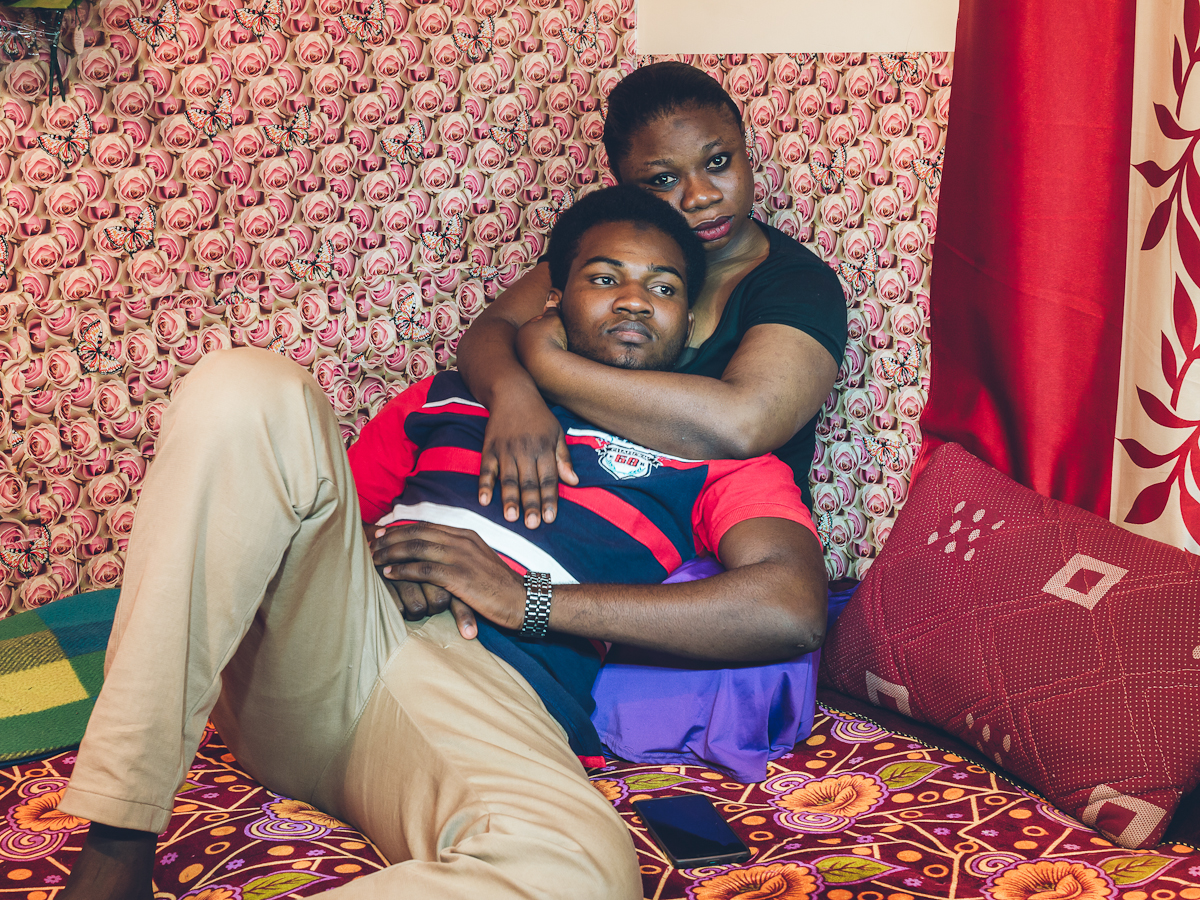
He said, “Instead of doing one story on this issue, I thought, let me do a six-months-long or a year-long project. I wanted to keep meeting Africans and discovering all the untold stories. By exhibiting these photographs over a period of time in five cities, I thought I could keep the subject alive in the imagination of the public. Racism isn’t something that should be ‘news-worthy’, we should open avenues for people to discuss racism all the time.”
The “The African Portraits” exhibition will be on at Tasveer Gallery, Bangalore, till September 23, 2016. To plan a visit, please visit Tasveer’s website or read Mahesh’s updates here.
Like this story? Or have something to share? Write to us: [email protected], or connect with us on Facebook and Twitter (@thebetterindia).
This story made me
- 97
- 121
- 89
- 167
Tell Us More
We bring stories straight from the heart of India, to inspire millions and create a wave of impact. Our positive movement is growing bigger everyday, and we would love for you to join it.
Please contribute whatever you can, every little penny helps our team in bringing you more stories that support dreams and spread hope.







